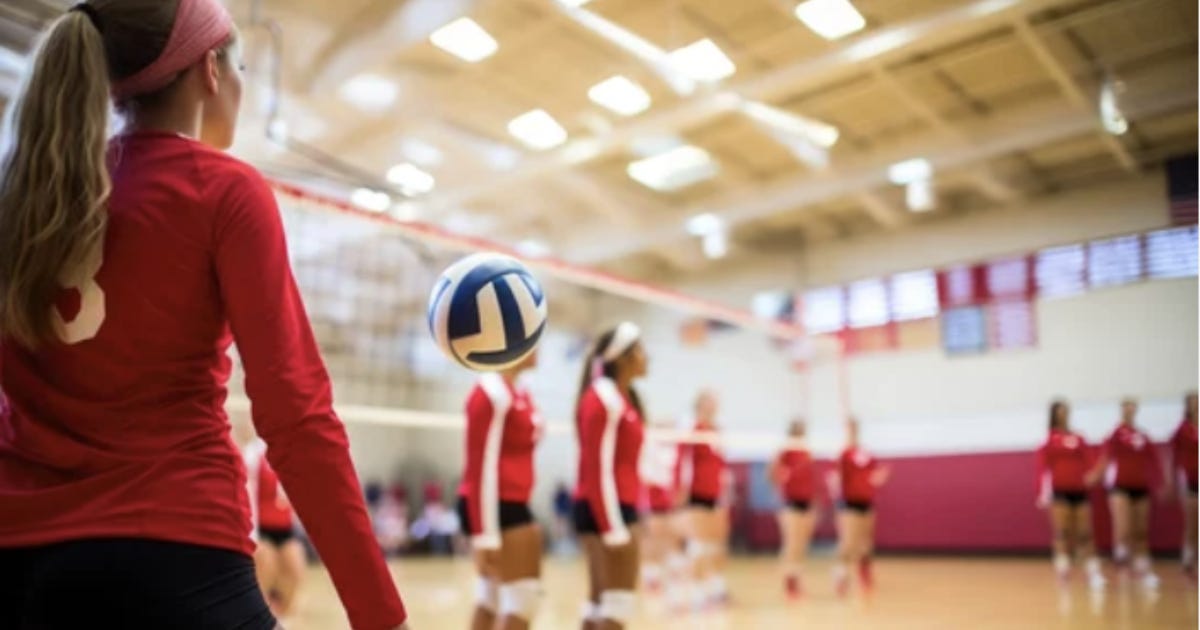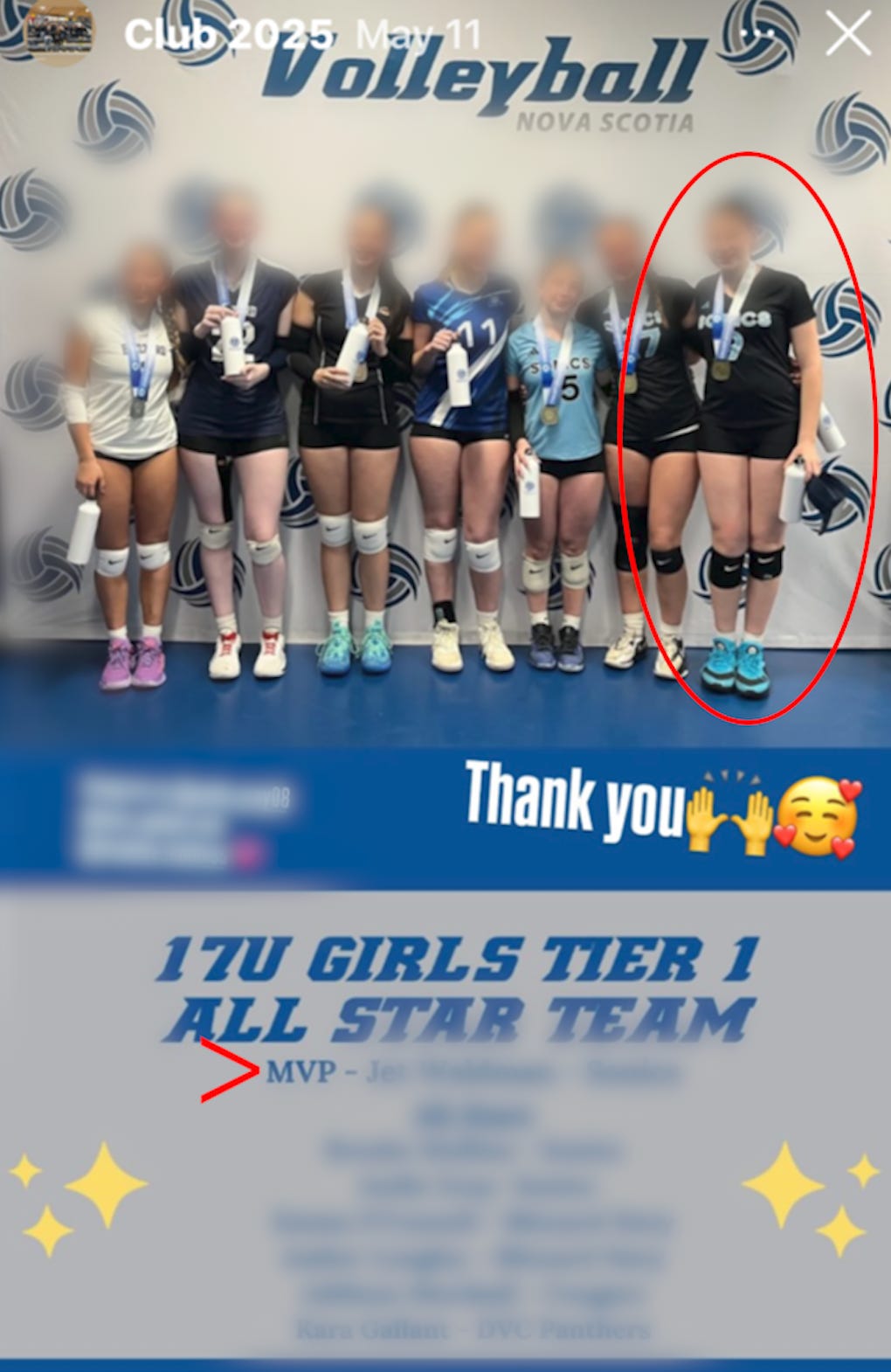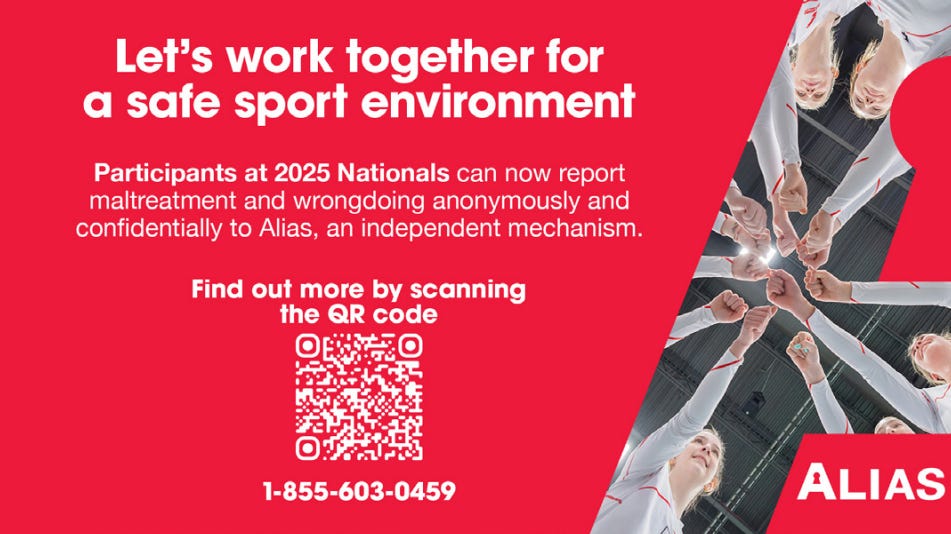EXCLUSIVE: Girl athletes silenced over concerns about male teammate in dorms
Members of Team Nova Scotia’s girls’ volleyball roster returned from the Canada Cup in Toronto under threat of sanctions after raising private concerns about competing against a male teammate.
Members of Team Nova Scotia’s girls’ volleyball roster returned from the Canada Cup in Toronto under threat of sanctions after raising private concerns about competing against and sharing private spaces with a male teammate who identifies as a girl.
The 17-year-old male “MVP” athlete was selected for the Team Nova Scotia roster after a strong club season in which he was named most valuable player after his team won the championship. However, the male’s inclusion on the girls’ provincial team required him to travel to Ontario and share accommodations with female athletes. According to multiple sources who spoke with True North, no prior disclosure or consent process was offered to the female players or their parents regarding his placement in female spaces, which left the girls grappling with an imposed reality they had no power to challenge.
At the Canada Cup, players discovered the teenage boy had been assigned to the girls’ dorm. An anonymous source alleged that while each player had their own room, bathrooms were shared. Some teammates expressed concern in a private Snapchat group, where they discussed their discomfort with the arrangements and the lack of prior consultation. Screenshots reached head coach Jon Elliott, who summoned players from the program’s elite teams for a meeting.
According to an anonymous source, Elliott condemned the chat as "disgusting" and alleged it was laced with "transphobia" and "homophobia." He threatened to expel any girls involved from the team and the upcoming club season. A subsequent email to parents echoed this stance, alleging an "LGBTQ+ athlete" had been targeted with "rude and disrespectful" remarks, yet omitted any mention of the trans athlete's male biology. Another email sent to parents revealed even fewer details.
At no point was the athlete’s male sex stated in any of the communications known to the anonymous source. The matter was framed as an equity and inclusion issue, with reference to breaches of Team Nova Scotia’s values and Code of Conduct. The wording of Volleyball Nova Scotia’s Diversity, Equity, and Inclusion policy, uses broad language to protect “LGBTQ+ athletes” but does not address fairness or safety concerns for female athletes when male players are included.
True North reached out to the male athlete, Volleyball Nova Scotia, and coach Jon Elliott to provide them with an opportunity to comment, but they did not respond. The male athlete’s mother responded to an email which described multiple allegations made by the source. She said that “the claims outlined in your message are false and harmful” but declined further requests to clarify which claims, adding that it’s “inappropriate to approach a minor for comment without parental consent, particularly on matters of this nature.”
The Canadian Centre for Ethics in Sport’s scientific review, which informs these policies, acknowledges that testosterone suppression does not eliminate male advantages such as muscle mass, bone structure, and jump height—attributes critical in volleyball—yet it imposes no domestic eligibility standards, leaving such decisions to provincial bodies.
Volleyball Canada’s Safe Sport program demands respect and prohibits discrimination, but it offers no process for minors to opt out or express discomfort about sharing intimate spaces without risking discipline. Terms like “discriminatory” or “harassing” remain undefined, allowing subjective interpretation that can penalize even private complaints.
Volleyball Canada’s "Complaint Super-Highway" makes the enforcement process fast and centralized. The online system routes all complaints to the appropriate authority. Complaints that involve safety, including discrimination or harassment, are automatically escalated. The system is designed to capture and act on reports of alleged misconduct quickly. What it does not provide is a safe channel for athletes to raise good-faith concerns about policy.
Under this framework, the girls faced a no-win scenario. Pressured to "snitch" on each other to avoid sanctions, they were caught in a web of rules that silenced objections. The threat of losing their place in the sport, especially for Grade 11 players facing a potential ban in their final year, loomed large.
While Volleyball Canada's annual report emphasizes a commitment to creating "safe and inclusive" environments, it does not directly address the physical implications of trans inclusion in contact or performance-based sports. Critics argue this omission ignores potential injury risks, especially where retained male physical advantages — like higher jump height and stronger hits — may affect female opponents or teammates.
Volleyball Canada and Jason Trepanier, executive director of Volleyball Nova Scotia, were contacted to obtain clarity on the matter, but they declined to comment.
The Canadian Centre for Ethics in Sport review acknowledges biological differences between males and females. It also admits that testosterone suppression does not remove all male performance advantages, noting that strength, speed, bone structure and vertical jump remain significantly higher than in natal females.
In volleyball, those retained advantages are real. A player who can jump higher, hit with more force and speed, block more effectively and serve with greater speed poses a different challenge than a typical opponent. For young female athletes still developing physically, this raises not just questions of fairness, but questions of physical safety.
Note: True North is not identifying the 17-year-old male player by name, as he is a minor.







The biological male should not be on a biologically female team, Full Stop!
Women’s and girl’s sports should be for biological females ONLY. Transgenders, form your own leagues!